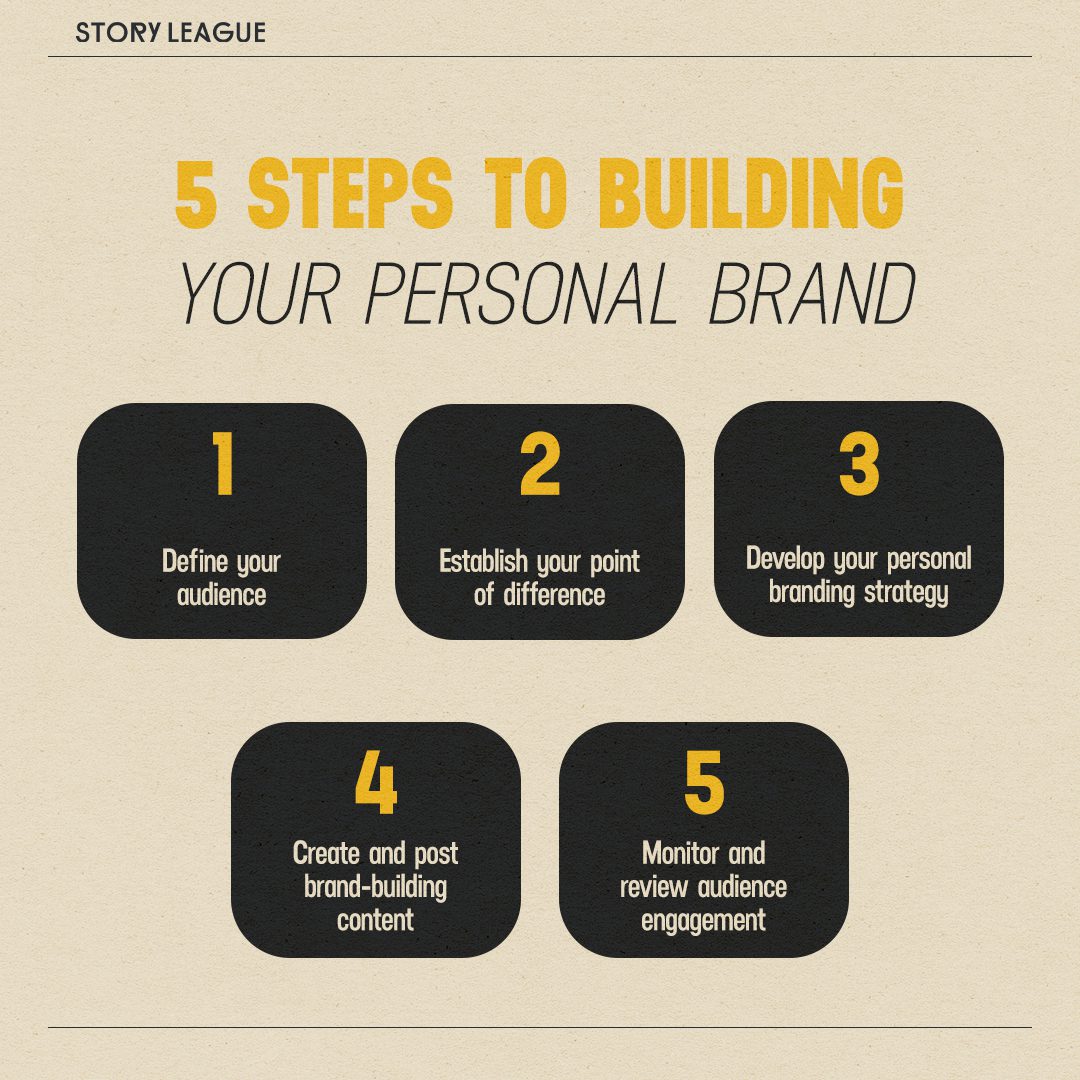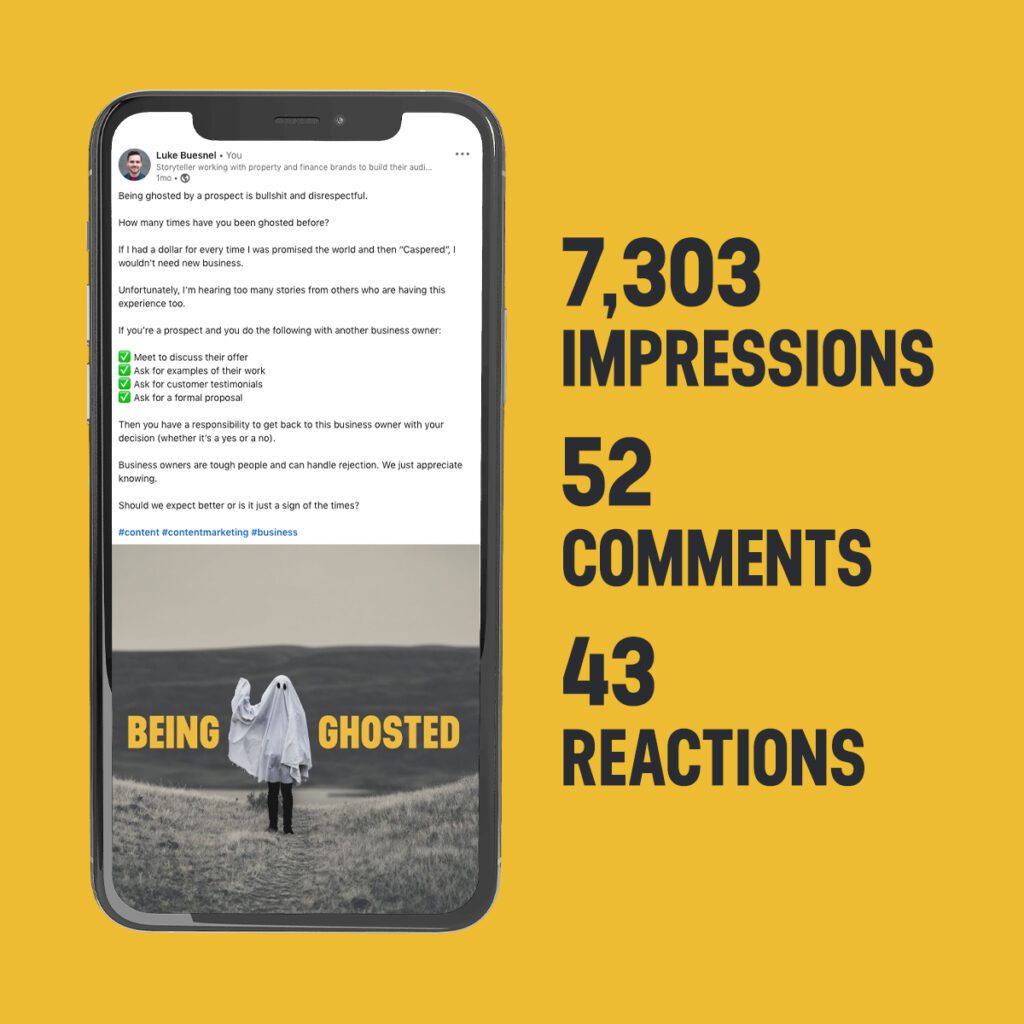What is your purpose as a real estate agent? Sure, the simple answer is to sell property and make a decent income. But, is your focus simply on locking in contracts and facilitating transactions, or do you want to become a trusted professional – the go-to person in your market?
According to the Real Estate Institute of Australia’s 2022 report, there are 46,793 real estate agencies in Australia that employ an estimated combined workforce of 133,360 Australians across principles, sales agents, property managers and other business and operational support.
So if you want to stand out in this saturated market, you need to have a compelling personal brand that appeals to your target audience.
Your purpose is the cornerstone of your personal brand and will help shape and drive your success. Identifying the value you offer to your clients is also key. Whether it’s expertise in market analysis, negotiation skills or a deep understanding of your clients’ needs and the local industry, you need to strongly market your value.
Your personal brand is the tool that communicates your character, your values and the experience and ethic that sets you apart from competitors. In real estate, a strong personal brand is not a luxury – it is a necessity, enabling you to be front of mind among vendors and sellers.
Ready to grow your brand and identity? Read on.
What is personal branding?
Ever Googled your name? Like what you see? Chances are your digital footprint needs work, and what better way to grow it than with an investment in personal branding?
Think of your personal brand as the story you want to share with the world about yourself. Your skills, your experiences, your values, your personality. Developing your personal brand is the art of crafting a narrative that captures your audience’s attention and leaves a positive and lasting impression.
People often mistake reputation for personal branding, or interchange the two, but they’re two completely different things. Your reputation involves people’s impressions of you based on your collective attitude and actions. In contrast, your personal branding is much more intentional and focused on how you want people to see you.
Your personal brand goes beyond your logo, signage and business name. In our digital-savvy world, your personal brand needs to break through the noise and establish yourself as an expert. You want to be the name that is spoken about and shared in a positive light at backyard barbecues when people talk real estate (and let’s face it, Australians love talking real estate).
Once you’ve built your brand, the key is to continue to tell your story by creating interesting and engaging content.
Not quite sure what your story is, or how to tell it? That’s where we come in.
What are the benefits of personal branding for real estate agents?
Strong personal branding can help you build an engaged network that supports you as you reach different milestones in your career as a real estate agent. Because you have a distinct set of values and principles, it will attract like-minded peers and colleagues you can trust and build connections with.
Once you establish your personal brand across all your platforms, you will be able to nurture trust and loyalty online with the next generation of vendors and buyers, the majority of whom are discerning, digital-savvy customers.
Your personal brand can also help you shorten your sales cycle because your followers already trust you and are inclined to work with you. This creates a feedback loop of an expanding customer base as your existing clients recommend you as a trustworthy real estate agent to their respective social circles.
Cultivating a personal brand is extremely beneficial to real estate agents because it positions them as thought leaders in their industry, allowing them to showcase their skill set and experience to their target audience. An effective personal brand will also attract more networking opportunities, which can add value to a real estate agent’s portfolio.
So, to break it down the key reasons real estate agents need to build their personal brand are:
- To cut through the competition – Vendors and buyers are swamped with choices. You need to make yourself stand out from every other agent.
- To create connections – Using well-created digital content online widens your engagement and reach.
- To build your future – Grow a successful and sustainable business or career.
Investing in your personal branding allows you to develop a well-constructed persona that appeals to your market, allowing you to expand your client base and find more work opportunities.
How personal branding enabled Ryan Serhant to dominate real estate
He’s the $30-million man and one of the most recognisable faces of real estate. And his success was built on brand and content. New Yorker Ryan Serhant of Bravo’s Million Dollar Listing New York and Sell It Like Serhant promotes his core brand identity in his digital content, allowing him to showcase his key qualities and expertise to his target audience.
To date, Ryan has a combined YouTube, Facebook and Instagram following of around four million people. Not bad for a guy who began his career in real estate during one of the darkest days of the US financial crash, as a way to pay his rent.
Today he is the CEO and founder of SERHANT., an integrated brokerage firm that comprises an in-house film studio, education arm, marketing division and technology platform with a focus on producing quality digital content.
Ryan is the ultimate example of how personal branding combined with strategic, constant content can build a successful career. His content tells his story.
How to build a strong personal brand
Establishing a personal brand takes goal-setting and effort, but we’ve shortlisted a few steps that can kick off your journey to becoming a top-of-mind real estate agent.

1. Define your audience
In the world of content marketing, the universal goal is to have maximum reach. After all, maximum reach means maximum potential. Everyone wants their content to reach as many people as possible, but any marketer worth their salt will tell you that leaving your audience too broad will keep you from reaching anyone.
Understanding your audience’s search patterns, touchpoints and needs is vital for crafting quality content. Your brand needs to connect with a distinct audience to make a lasting impact. This is called audience segmentation – or defining your audience – and it can guide your marketing strategy and content creation.
Audience segmentation-led content can boost your business by managing the different expectations of the subgroups in your customer base. These subgroups can be demographic, geographic, behavioural or attitudinal based.
Audience segmentation not only improves your messaging – targeting specific groups with specific content – but it also ensures your services are streamlined with your content.
2. Establish your point of difference
A logo, colour palette and cohesive design across your website and digital platforms is a part of setting up your brand, but a successful marketing campaign doesn’t stop at visual identity. It goes much deeper than this.
Who you are, what you stand for and why you need to be trusted over competitors is a major element of personal branding. Ask yourself these three questions:
- What do you stand for?
- What motivates you?
- What does your audience need from you?
There’s no point trying to position yourself as a luxe agent when you’re selling units in a lower socio-economic area. Identify your value proposition and use that point of difference to build your business.
Know your product and know your target market and use that point of difference to build your business by creating fun, thought-provoking content. Engage your audience – ask questions, and share stories. Check out our Founder Luke Buesnel’s content for example:

As he says, you need to cut through the noise and encourage conversation – all while promoting your brand.
Keep in mind that deliberately posting inflammatory content in an attempt to receive a reaction, is not the way to go. It needs to be about sharing intelligent, value-adding insights.
3. Develop your personal branding strategy
Crafting your personal brand requires a strategic approach, backed up with an actionable plan. This plan should align with your values and aspirations. Basically, it is a content strategy that is tailored to your personal brand’s growth.
So, what content methods can you use to communicate your story?
- Website: Update your website and use it as a central hub for your brand, offering property listings, market insights and SEO-based blogs to reach a wider audience.
- EDMs: Email direct marketing still has a substantial role to play in sharing your personal brand and key messages. Targeted email campaigns help to nurture client relationships, provide relevant industry updates and can also be used as a mouthpiece to share good stories with your audience.
- SEO support: As previously mentioned, SEO content is a great way to optimise your online presence. Using smart SEO strategies will help your content rank higher in search engine results, attracting potential clients and helping to share your brand.
- Social media: Professionally-created social media posts should form part of your personal brand strategy enabling you to reach a wider market. It is also a fun and engaging way to share your story.
These are initiatives that you can incorporate into your digital personal branding strategy. When it comes to real-world interactions with clients and colleagues, you also need to make your personal brand a fulfilling part of your daily work routine as a real estate agent. This makes your personal branding natural and authentic.
4. Create and post brand-building content
As demonstrated successfully by Ryan Serhant, you can’t build a personal brand without content. And the more engaging the content, the better! Incorporating a social media strategy into your overall marketing plan is a great tool.
Creating a content calendar and strategy ensures consistent, quality posts, as well as variety. Don’t post sporadically; treat your calendar as a tool with plans, deadlines and key dates. This approach streamlines your content, making it effective and timely for your audience while maintaining a balance in your online feed.
Identify the types of content you should create and which is best suited for the various social media channels. For example, a post shared on LinkedIn might not resonate with an Instagram audience.
5. Monitor and review audience engagement
It is also important to review your social media insights to help you identify what is working and what is not. There are plenty of content data-pulling programs that you can use to understand and interpret data or trends. Try a system such as Meta Business Suite for Facebook and Instagram, LinkedIn Analytics or YourTube Creator Studio.
Building a personal brand is an investment in yourself and your business. Content creators are able to frame an engaging content plan to help you dominate the industry. A personal brand isn’t built overnight and all by yourself – get in touch with us and build one that engages your exact audience.

